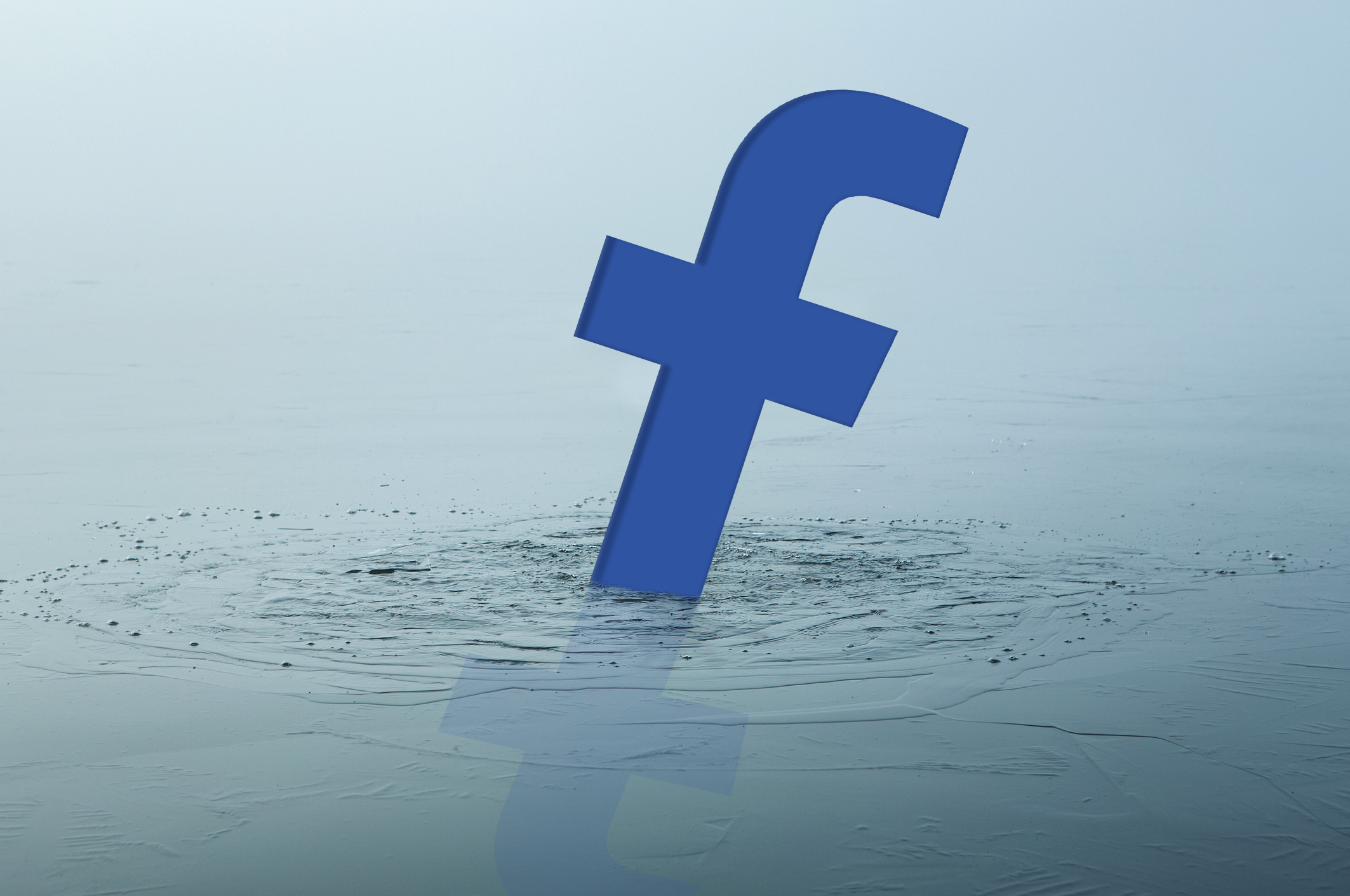Is Facebook in danger?
On the fallout from Mark Zuckerberg's 'privacy bombshell'

The smartest insight and analysis, from all perspectives, rounded up from around the web:
"Mark Zuckerberg has yet another mess on his hands," said Maya Kosoff at Vanity Fair. After spending last week on a "cringe-inducing apology tour," following revelations that a political data firm had plundered the personal data of more than 50 million Facebook users, the Facebook CEO was forced this week to respond to "another privacy bombshell." Android phone owners discovered that the social network had been keeping detailed logs of their phone calls and texts, in some cases for years. Facebook was quick to argue that the data collection was "entirely aboveboard" and listed in the fine print of its app's user agreement. But that did little to appease "horrified" users — and only seemed to accelerate the growing #DeleteFacebook movement. Zuckerberg appears to think he "only needs to tweak Facebook's approach" to vacuuming up users' data in order to ride out this wave of discontent, said The Economist. But the company has lost some $90 billion in market value in just two weeks, and the "chances of a regulatory backlash are growing" on both sides of the Atlantic. Facebook is in the midst of a "reputational meltdown," and if it isn't careful, its "entire business model will be at risk."
People are finally waking up to the fact that on the internet, "nothing comes for free," said Daniel Thomas at the Financial Times. We've been paying for Facebook all these years with our data — our every online movement carefully catalogued, analyzed, and sold. Will that realization be enough for increasingly distrustful users to log off the social network for good? That could be a "real danger" for Zuckerberg; Millennials and teens have already been fleeing to rival social networks, and the number of active users in the U.S. and Europe has been flat or falling. This scandal certainly feels different, said Charlie Warzel at BuzzFeed. "It perfectly touches upon a deeper anxiety about our online privacy," confirming fears that online platforms "are manipulating us." They're tracking us, harvesting information about our lives, and then selling our data so we can be targeted and coerced into buying everything "from diapers to mattresses to anti-vax literature." It's increasingly "hard to look at the trade-offs we've made and feel like we're getting a fair deal."
The Week
Escape your echo chamber. Get the facts behind the news, plus analysis from multiple perspectives.

Sign up for The Week's Free Newsletters
From our morning news briefing to a weekly Good News Newsletter, get the best of The Week delivered directly to your inbox.
From our morning news briefing to a weekly Good News Newsletter, get the best of The Week delivered directly to your inbox.
"Even if tens of thousands of Americans quit Facebook tomorrow, the company would barely feel it," said Siva Vaidhyanathan at The New York Times. Growth in the U.S. may have "plateaued," but the social network has 2.1 billion users worldwide, and it's growing rapidly in countries such as India, Indonesia, and Brazil. In many places, Facebook is the internet — the only source of news and the only way to keep in touch. That kind of dominance doesn't mix well with accountability or reform. Facebook is far from the only "privacy scoundrel" anyway, said Jack Shafer at Politico. Your smartphone "sells your personal information, including real-time location, to third parties." Your internet provider peddles your online habits to the highest bidder, while smart devices such as speakers, TVs, and coffee makers spy on you at home. So go ahead — delete Facebook and "strike that blow against the empire." Just don't think "your minor act of rebellion" means you'll "throw off the internet surveillance shroud."
A free daily email with the biggest news stories of the day – and the best features from TheWeek.com
-
 31 political cartoons for January 2026
31 political cartoons for January 2026Cartoons Editorial cartoonists take on Donald Trump, ICE, the World Economic Forum in Davos, Greenland and more
-
 Political cartoons for January 31
Political cartoons for January 31Cartoons Saturday's political cartoons include congressional spin, Obamacare subsidies, and more
-
 Syria’s Kurds: abandoned by their US ally
Syria’s Kurds: abandoned by their US allyTalking Point Ahmed al-Sharaa’s lightning offensive against Syrian Kurdistan belies his promise to respect the country’s ethnic minorities
-
 The pros and cons of noncompete agreements
The pros and cons of noncompete agreementsThe Explainer The FTC wants to ban companies from binding their employees with noncompete agreements. Who would this benefit, and who would it hurt?
-
 What experts are saying about the economy's surprise contraction
What experts are saying about the economy's surprise contractionThe Explainer The sharpest opinions on the debate from around the web
-
 The death of cities was greatly exaggerated
The death of cities was greatly exaggeratedThe Explainer Why the pandemic predictions about urban flight were wrong
-
 The housing crisis is here
The housing crisis is hereThe Explainer As the pandemic takes its toll, renters face eviction even as buyers are bidding higher
-
 How to be an ally to marginalized coworkers
How to be an ally to marginalized coworkersThe Explainer Show up for your colleagues by showing that you see them and their struggles
-
 What the stock market knows
What the stock market knowsThe Explainer Publicly traded companies are going to wallop small businesses
-
 Can the government save small businesses?
Can the government save small businesses?The Explainer Many are fighting for a fair share of the coronavirus rescue package
-
 How the oil crash could turn into a much bigger economic shock
How the oil crash could turn into a much bigger economic shockThe Explainer This could be a huge problem for the entire economy